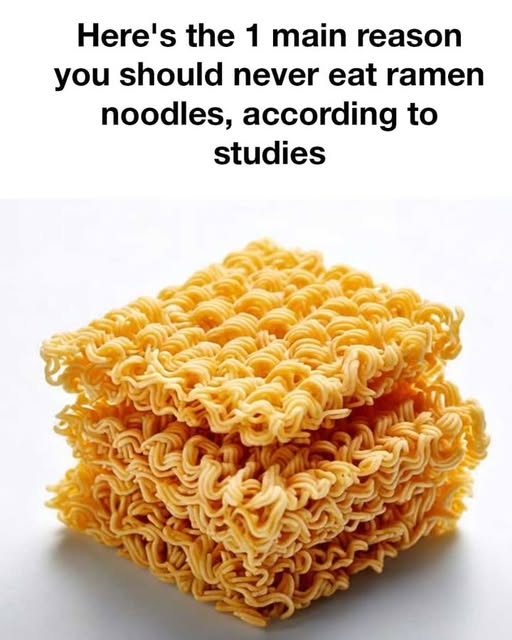Ramen noodles have long been a staple for college students, busy professionals, and anyone looking for a quick and inexpensive meal. However, beneath their convenience and savory taste lies a hidden danger that many are unaware of. The primary concern with ramen noodles is not just their high sodium content or lack of nutritional value, but a specific preservative used in their production.
This preservative, tertiary butylhydroquinone (TBHQ), is a chemical that can pose significant health risks when consumed in large quantities over time. Understanding the potential dangers associated with TBHQ is crucial for making informed dietary choices.
Understanding Tertiary Butylhydroquinone
Tertiary butylhydroquinone, or TBHQ, is a synthetic antioxidant used to extend the shelf life of processed foods by preventing oxidation and spoilage. It is commonly found in packaged foods, including ramen noodles, due to its effectiveness in preserving fats and oils.
CONTINUE READING NEXT PAGE
ADVERTISEMENT

